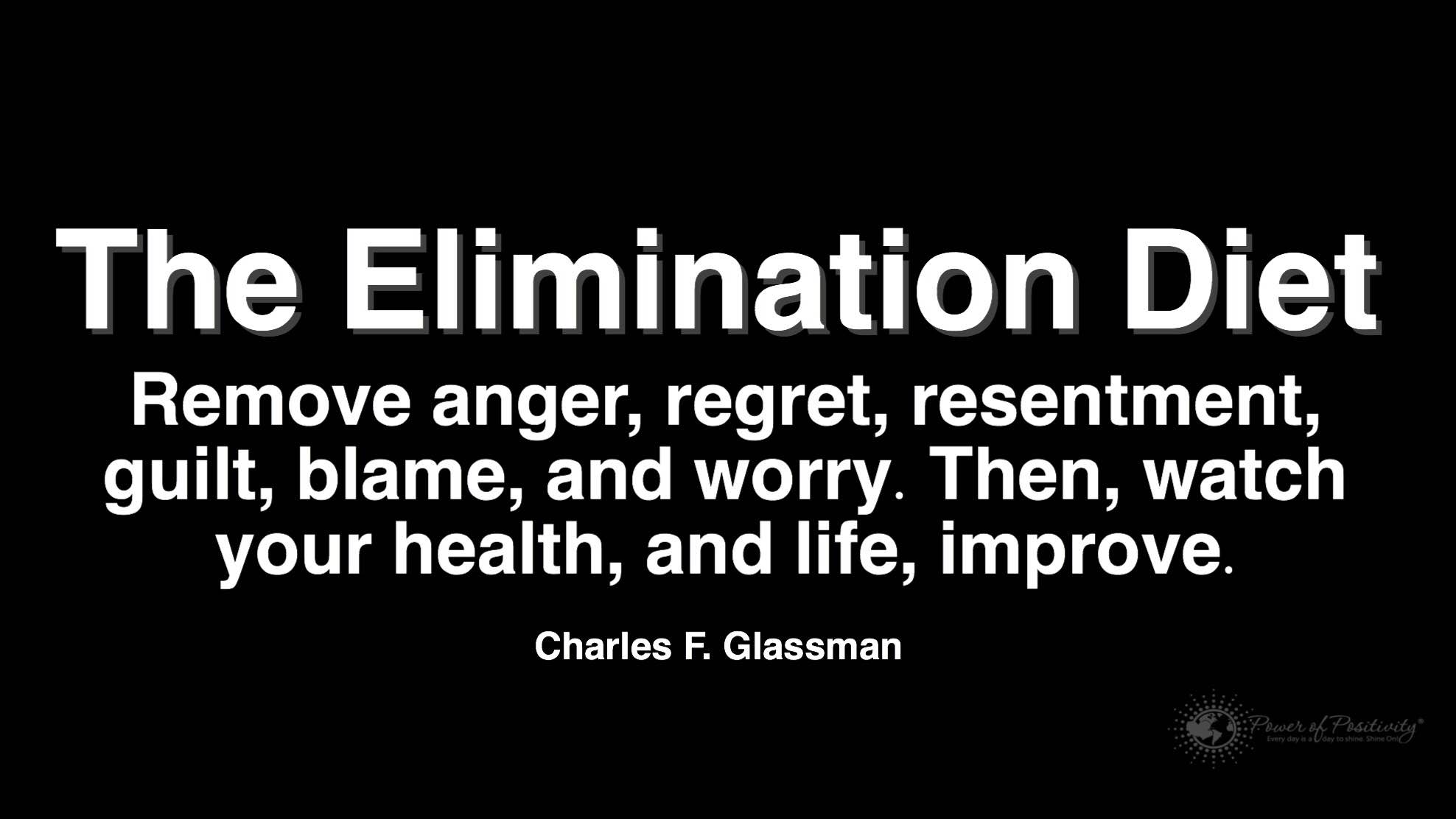“The elimination diet: Remove anger, regret, resentment, guilt, blame, and worry. Then watch your health, and life, improve.” – Charles F. Glassman
This quote fully encapsulates Dr. Charles Glassman’s total wellness philosophy – namely that seeking inner power and peace serves as a precursor to many other benefits of the mind and body.
As opposed to sticking with the traditional “diagnose, treat and repeat” cycle of traditional medicine, Dr. Glassman goes beyond this with special emphasis on self-awareness and personal action. Five years ago, Dr. Glassman founded the New York Center for Longevity and Wellness – a medical practice dedicated to treating patients with a comprehensive approach to mind/body wellness and conventional medicine.
Dr. Glassman frames the practice of self-awareness as a necessity when it comes to well-being. In essence, Glassman associates many of the problems that we currently face – mental, physical, and emotional – with the automatic responses generated by our very brains. In managing these automatic responses, it becomes possible to understand and control mind/body connections and, hence, our health.
Of all of Glassman’s philosophies on health, the greatest amount of emphasis may be placed on preventative care. As Glassman says, “My goal is to prevent illness and to practice healthcare rather than focus on “sick care.” Accomplishing this, Glassman believes, requires managing the everyday challenges of life; hence, balancing stress and maintaining strong optimism.
Simply put, we must properly use our minds to heal our bodies and eat a proper diet.
In his book Brain Drain – The Breakthrough That Will Change Your Life, Dr. Glassman explains exactly how to do that. Using case studies of clients, Glassman teaches his readers how to handle situations trigged by automatic brain responses to achieve health.
It is beyond the scope of this article to analyze and summarize Dr. Glassman’s book for practical use. However, the tenets he uses in his treatment methods are quite straightforward and understandable.
Glassman summarizes the problem with the automatic brain (termed “AB”): “Our AB has one function – to protect us from danger, threat, or vulnerability. When it detects such, it releases an electrochemical response that we know as the fight or flight response. But this reaction is not simply getting you scared. This AB reaction leads up into behaviors and emotions that sometimes show up as fear, anger, rage, or even sadness, depression and withdraw.”
In other words, our AB can use the innate “fight or flight” response to manifest harmful and counter-productive thoughts. These thoughts are the enemy and the reason for ill health of any kind. Further, these thoughts are why we fail to achieve any worthwhile endeavor. These thoughts are why life is “bad” at times.
Dr. Glassman suggests that it’s not only unnecessary to control thoughts, but it’s also nearly impossible. Unless one happens to be a Buddhist monk or meditative sage, there has to be another way…and there is.
Dr. Glassman lays out seven steps to help us gain more control over our thoughts–and our diet:
- Do not believe everything you think.
- Understand that unwanted thoughts always arise to protect you (the “fight or flight” mechanism).
- Try to identify the circumstance that caused the thought.
- Realize that the circumstance is unlikely to be dangerous at all.
- Don’t fight the thoughts. It is more normal to get negative thoughts than not.
- Recite in your mind, “There is no danger, there is no threat, I am safe,” whenever getting these thoughts.
- If you get a negative thought that is particularly hurtful, finish it off.
For instance, if you get a thought that says, “I’m a loser.” Finish it by saying in your mind, “Yes, I am a loser. I am a loser if I play a game I know nothing about. But since my life is not a game and I play by my own rules I am a winner.”
If this sounds familiar to mindfulness meditation, that’s because it is. It’s about being mindful that our thoughts are not always our own. In realizing that our automatic brain will sometimes act erratically due to the still-primitive nature of our “lizard brain,” we can anticipate and respond to the thoughts that attempt to defeat us.
Finally, Dr. Glassman has the following diet advice: “I suggest you don’t try to control your thoughts. Follow these steps, and it will help you accept them, but more importantly, help you so you do not always believe, trust, or take direction from them. Doing so will elevate your health, and peace of mind, and “live your everyday extraordinary!”

















